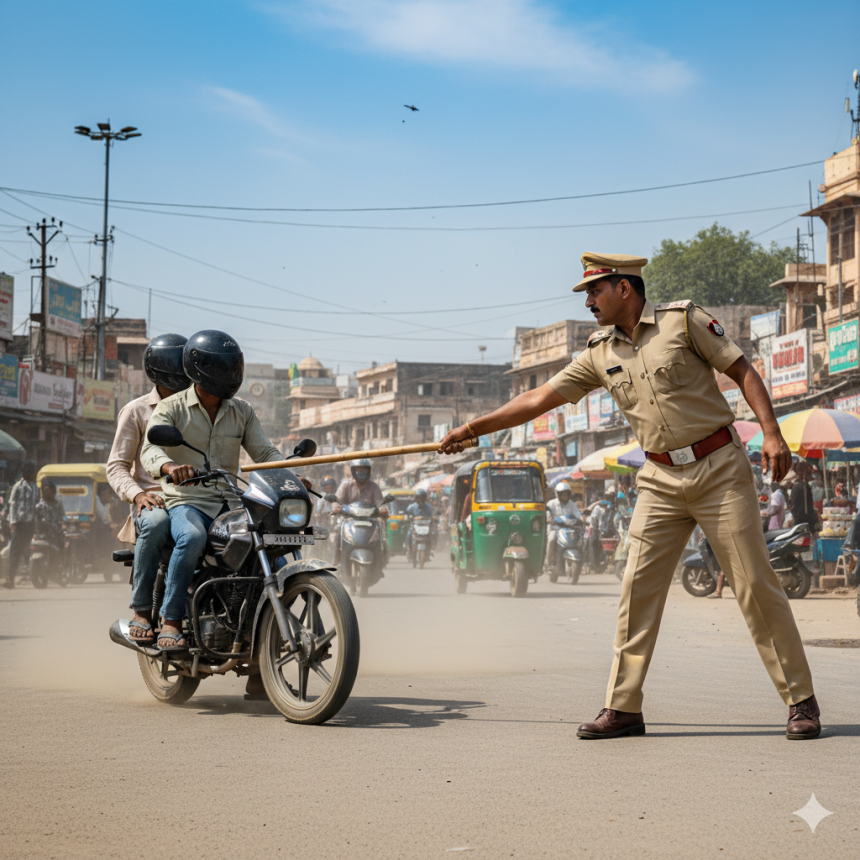Last week, I was driving home late in the evening when I noticed a police checkpoint ahead. Instinctively I straightened my posture, lowered the volume of the music and mentally rehearsed a polite tone in case I was stopped. It is amusing in a way. I was not breaking any rule. My papers were in order and I was not speeding. Yet there was that familiar anxiety most Indians know too well. A silent hope that the interaction does not happen.
That moment stayed with me longer than it should have. Why do I feel this way towards an institution that supposedly exists for my protection? Why does police presence trigger caution instead of comfort? Why does a citizen who has done nothing wrong prepare for defence?
The problem is not with individual officers. Many of them are doing honest work under difficult conditions. The discomfort comes from the history attached to the institution itself. In India and many other countries the police were not originally created to serve citizens. They were created to control them. Their loyalty was not to the people but to those in power. The laws and uniforms may have evolved since then but the psychology has not shifted entirely.
Even the word police carries weight. It does not sound like assistance. It sounds like authority. It does not evoke support. It evokes discipline. It is not associated with help. It is associated with interrogation.
Which brings me to a thought that may sound unusual at first. What if we changed the name?
Not for a cosmetic rebranding and not as a temporary campaign. A name change only makes sense if it signals a shift in identity. Imagine if instead of Police Department we called it Public Safety and Service Department. Imagine if the official designation said Community Guardian. The uniform may remain but the title would change the expectation. Authority would not be the first association. Responsibility would.
We have seen similar language in use already. Civil services are technically called civil servants. The idea is noble but rarely practiced in spirit. What is the point of calling someone a servant of the people if citizens still feel the need to stand with folded hands to get basic cooperation? Respect should not be demanded through hierarchy. It should flow naturally through conduct.
No one should be forced to call an officer sir or madam just to be treated fairly. In Indian culture we often use ji as a polite suffix. Why can I not say Sharma ji or Khan ji instead of yes sir in a trembling voice? Why must authority require linguistic submission? They are as human as us. Uniforms should not turn people into deities.
Of course changing the name alone would not be enough. If training remains rooted in intimidation nothing will change. If the internal reward system still values aggression more than resolution then the label will collapse under hypocrisy. A new identity must be paired with new incentives. Officers should be recognised not only for catching criminals but also for calming chaos guiding lost people and helping citizens without expecting compliance in return.
A healthy democracy does not need rulers in uniform. It needs protectors among the people. The day I see a checkpoint and feel relief instead of stiffness is the day I will believe the system has evolved.
That future is not unrealistic. It is simply unfamiliar. And sometimes unfamiliarity begins to fade with something as small as a name.






